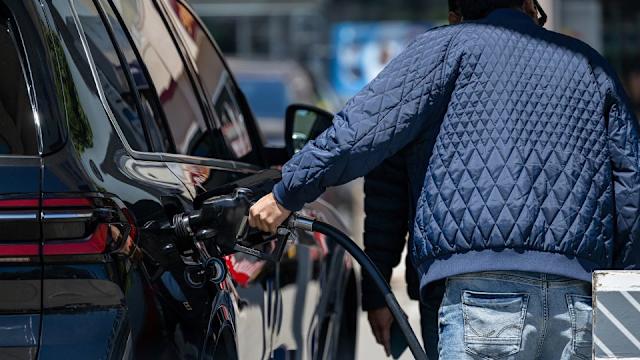Gas prices appear to have stabilized at a national average of $3.22 a gallon on Tuesday, according to AAA. This is an increase from $3.13 a gallon earlier this month when Israel attacked Iran, but it's still lower than last year's average of $3.45 a gallon. The stabilization of gas prices comes as a relief to many, as surging gasoline prices would have been the last thing the US economy needed right now.
The US economy is fragile and needs the fragile ceasefire brokered by President Donald Trump in the Middle East to hold. If the pause in fighting between Israel and Iran fails and major hostilities resume, oil prices would likely spike again. An oil shock would make matters worse for the US economy, which is already expected to see inflation heat up this summer due to Trump's massive tariffs on imports.
Alan Blinder, an economics professor at Princeton University and a former top Federal Reserve official, told CNN in a phone interview that the economy would be hit with a "double-whammy" if there were both a stagflationary shock from tariffs and a potential oil shock. "The economy is vulnerable to anything that could go wrong, and this certainly qualifies," said Mark Zandi, chief economist at Moody's Analytics.
Investors are breathing a sigh of relief in recent days as stocks have popped and oil prices have plunged in one of the biggest sell-offs in years. Iran's response to US strikes on nuclear sites was far more limited and symbolic than feared, and the ceasefire between Israel and Iran eases fears that vital energy infrastructure in the region will get caught in the crossfire.
The nightmare scenario had been that Iran would try to close the Strait of Hormuz, the most critical oil chokepoint on the planet. Analysts have warned that if this waterway shut down, oil prices could easily spike beyond $100 or $120 a barrel, causing a return of $4 to $4.50 gas in the US. But by Tuesday, the odds of Iran closing the Strait of Hormuz had plunged to just 17% as investors bet the worst in the Israel-Iran crisis may be over.
Observers have noted that closing the Strait of Hormuz would be counterproductive for Iran, which relies on the waterway to get its own oil to customers, mostly in China. "They would be shooting themselves in the foot," Blinder said. "But countries have been known to do that."
In testimony before Congress on Tuesday, Fed Chair Jerome Powell reiterated the central bank's wait-and-see stance, telling lawmakers: "I wouldn't want to point to a particular meeting. I don't think we need to be in any rush because the economy is still strong."
For now, investors are hoping the ceasefire in the Middle East means there won't be a repeat of the $5 gasoline crisis of 2022. However, critics of Trump's aggressive use of tariffs warn that they will backfire too. Inflation has cooled in recent months even as Trump has lobbed tariffs on autos, steel, aluminum, and imports from most countries. Yet many economists say this is the calm before the storm, with tariff-fueled price hikes on the way. Unless tariffs get dramatically scaled back, inflation is likely to heat up by 1% to 1.5% from current levels. "That's not going to be acceptable for the Fed," said Bob Elliott, CEO of alternative investment firm Unlimited.

The imposition of Trump's tariffs combined with the ongoing Iranian crisis represents a double-edged sword for the US economy, sliceing away at both jobs and job security while wieldingly impacting international trade relations.
The imposition of Trump's tariffs, coupled with the unresolved Iran crisis and its resultant supply chain disruptions within key US trade networks puts a further strain on an already-unstable economy.
The imposition of Trumps' tariffs and the ongoing Iran crisis have indeed dealt a double-whammy to America’s economy, exacerbating trade tensions globally while increasing uncertainty on energy supply chains at home.
The excessive use of Trumps' tariffs combined with the ongoing Iran crisis has created a double-whammy for America, jeopardizing both its economic stability and international relations.














